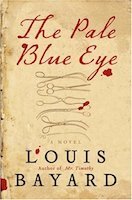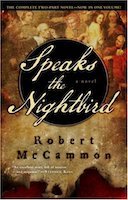Review: In the House in the Dark of the Woods
/3 stars. Not what I was expecting at all, even though I knew to expect something strange and far out there! As best as a summary as I can manage: a woman heads into the forest to pick berries for her family, gets lost, goes missing. She then has a long series of very unusual, enchanting, mysterious, almost magical encounters with those who dwell in the woods and finds herself trapped - or perhaps flings herself willingly - into a cycle where her choices will impact far more than her quest to return home.
1 star for slaying a style of writing I've never really encountered before: not only was it very different and unusual, but it was good and beautiful and refreshing. Not different for the sake of being different. Different because it lent to the setting, the voice, the tone, the narrative itself. It further distinguished the book as its own thing - see below.
1 star for the setting. I'm such a sucker for Colonial horror, especially with witches and crackling fires and magic herbs and fouled wells and berries with cream and bonnets and religious fervor and the decidedly male determination to conquer what is wild and shouldn't be tamed. Take the movie The Witch, turn it inside out, then tip it sideways and then zoom out - this is the type of story you'll find.
1 star for being completely untethered. I considered docking a star for this, but I've so rarely encountered a story that doesn't really reference, or connect, to anything familiar (and boy oh boy did my brain try - over and over again to grasp at whatever it could) that I can't help but admire it. Aside from the most prival (primeval) tropes, like the evil in the woods, and maybe a few lessons about consequences and making promises, this is truly its own thing.
I think maybe I'll remember this story by its moments - by its individual threads versus the whole tapestry. The blurb uses the word "ingenious" and I don't think that's wrong... but it's maybe a little too ingenious, for me. Reminds me of something almost academic. But I truly respect it. And I would like to read more by this author. I might even re-read this one, if I feel like a rabbit hole again.
In the House of the Dark of the Woods on: Amazon | Bookshop.org | Goodreads










